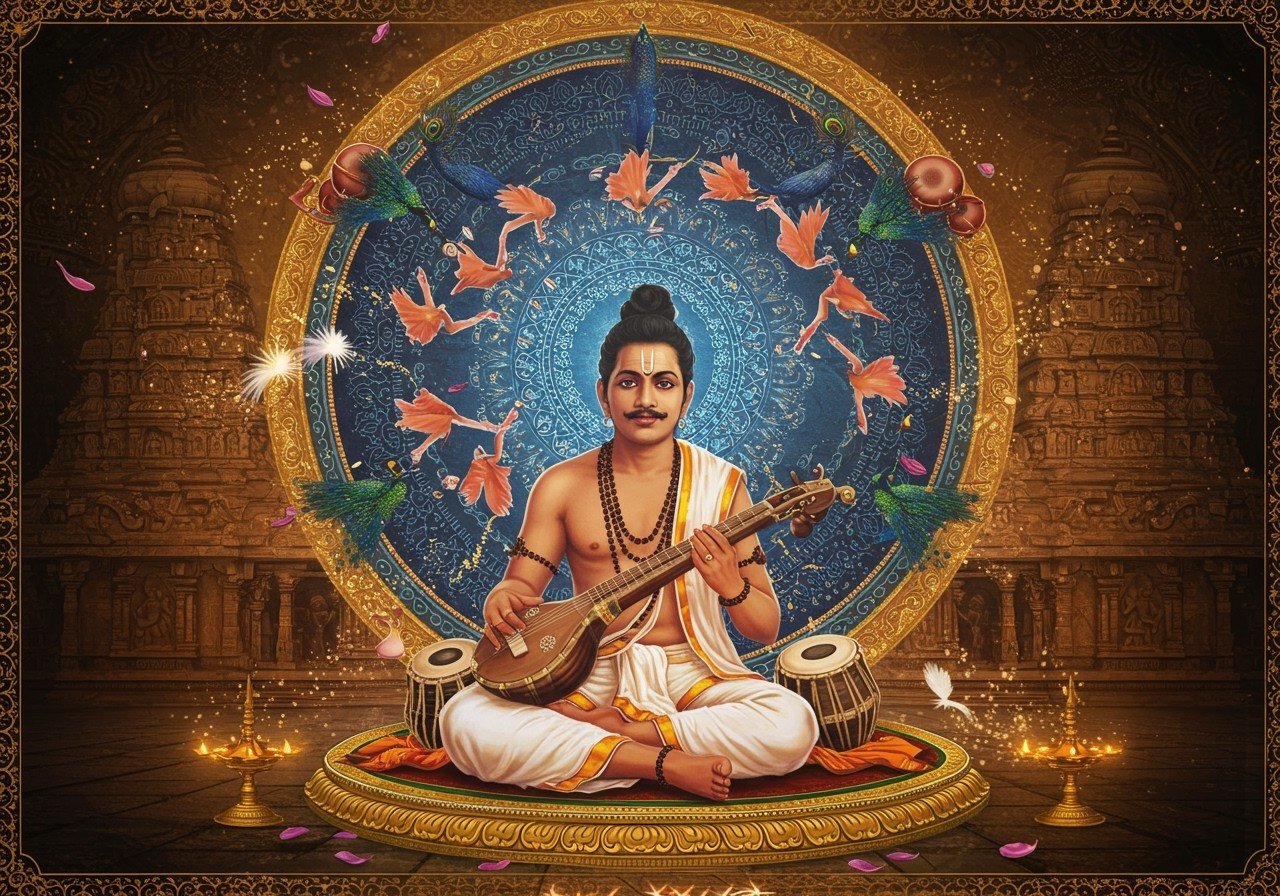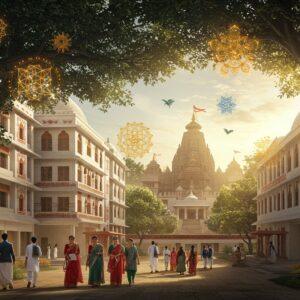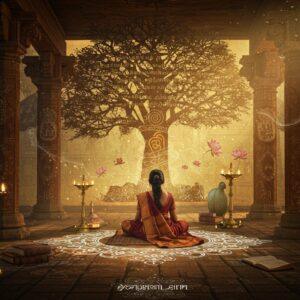
Purandara Dasa, a revered figure in Indian culture, is often called the “Father of Carnatic Music.” His work significantly shaped the musical tradition we cherish today. By exploring his life (c. 1470 – c. 1564), we gain insight into his pivotal role in the 16th-century Vijayanagara Empire and understand why his compositions are still celebrated.
Early Life and Spiritual Transformation
Born around 1470 as Srinivasa Nayaka in present-day Karnataka, Purandara Dasa hailed from a prosperous merchant family. Initially a wealthy moneylender, his life took a dramatic turn after a profound spiritual experience. This led him to renounce his material possessions and embrace a life dedicated to spiritual pursuits. Guided by his guru, Vyasatirtha, Purandara Dasa embarked on a transformative journey that intertwined spiritual growth with musical expression.
Musical Contributions and Innovations
Purandara Dasa’s contributions to Carnatic music are immense and far-reaching. He is credited with systematizing the method of teaching Carnatic music, creating a structured pedagogical approach that is still followed today. His innovative approach revolutionized music education, leaving an enduring legacy.
- Systematized Music Education: Purandara Dasa developed a comprehensive system for teaching music, often referred to as the “Purandara Dasa Paddhati.” This system includes graded lessons progressing from basic to advanced levels, ensuring a structured learning experience for students.
- Mayamalavagowla as the Foundation: He introduced the raga Mayamalavagowla as the fundamental scale for beginners, making it the cornerstone of early music education. This choice simplified the learning process and provided a solid base for further musical exploration.
- Graded Lessons: He established a series of structured lessons including Swaravalis, Janti Swaras, Alankaras, Lakshana Geetas, Prabandhas, Ugabhogas, Daatu Varase, Geeta, Sooladis, and Kritis. This structured curriculum facilitated a step-by-step learning journey for aspiring musicians.
- Fusion of Elements: Purandara Dasa stressed the importance of blending bhava (emotion), raga (melody), and laya (rhythm) in his compositions. This emphasis created a rich tapestry of musical expression, elevating the art form to a higher level.
- Colloquial Language and Accessibility: He masterfully incorporated everyday language and relatable themes into his lyrics, making his music resonate with a broader audience. This accessibility ensured that his message reached people from all walks of life.
- Musical forms: Kritis, Keertanas, Padams, Bhajans, Geetams, and more: He didn’t restrict himself to just one form. His creative spirit led him to explore and use various musical forms. By doing this, he created a wider range and ensured his musical expressions would connect with more people in more meaningful ways.
- Ragas: Identifying and Popularizing 84 Ragas: His work involved identifying and using 84 ragas. This deep dive into melodic forms showcased his mastery of musical theory. His compositions often feature prominent ragas like Kalyani, Varali, Todi, Bhairavi, and Saaveri, which are still cherished and explored today.
Philosophical and Devotional Themes
Purandara Dasa’s compositions are imbued with profound philosophical and devotional themes, primarily centered around Lord Krishna. Expressed predominantly in Kannada, with some in Sanskrit, his kritis convey complex spiritual messages in simple, accessible language, appealing to a wide audience. His work emphasizes devotion, ethical living, and the transient nature of worldly possessions.
Lasting Legacy and Influence
Purandara Dasa’s impact on Carnatic music remains indelible. His compositions are an integral part of concerts, and his teachings continue to shape generations of musicians. The annual Purandara Dasa Aradhana festival is a testament to his enduring legacy, celebrating his life and music. His influence extends beyond the realm of music, significantly impacting Kannada literature through his Dasa Sahitya, which played a vital role in the Bhakti movement in Karnataka.
Poojn.in: Supporting Your Devotional Practices
At Poojn.in, we offer a wide selection of high-quality products for your devotional needs. Explore our range of pure cow ghee, available in convenient sizes, perfect for havans, poojas, and other religious ceremonies. Shop Pure Cow Ghee for Pooja and other essential items for your spiritual practices. For bulk orders, connect with us on WhatsApp at +91 7908548235.


